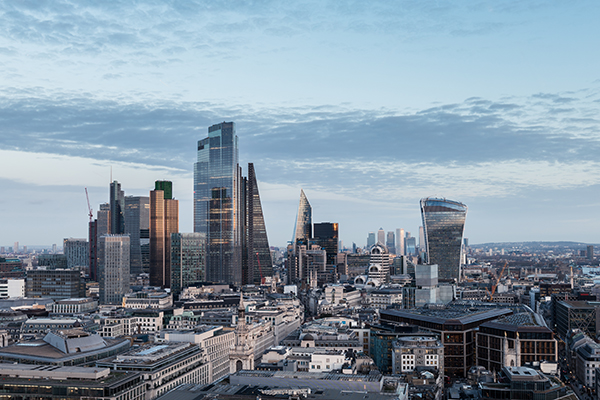With its audacious and promising title, there was never any doubt that Paul Mason's new book would cause a stir.
The FT's Gillian Tett, presumably no objector to free market economics, lauded Postcapitalism for containing a "fascinating set of ideas", saying it deserves wide readership among both the left and right. In contrast, the ex Labour MP Chris Mullin complained that Mason's arguments are "shackled to the remnants of a hopelessly impractical ideology", and that his policy prescriptions are misguided and naive.
That the book has won plaudits among many on the right while being panned by others on the left is testament to its complexity. At 290 odd pages, the reader is spared the length of a Pikkety-like tome. But what the book lacks in volume it makes up for in intellectual density and nuanced analysis - mostly done through a Marxist lens. To say Mason has done his homework is an understatement.
The book begins not with a hackneyed list of our economic woes but with a historical meta analysis of how capitalism has evolved since its beginnings 250 years ago. Mason points out that our fortunes have tended to wax and wane in 50-60 year cycles - otherwise known as Kondratiev Waves. We are told that the fourth wave began following the Second World War, but came to an abrupt end with the economic crash of 2008. The oil shocks of the 1970s and the break from the Bretton Woods system signalled the 'peak' of this era, and thereafter it has more or less been downhill.
So can we expect a fifth wave to begin anytime soon? Not quite, says Mason. The central argument of the book, and one surprisingly left unpicked by the critics, is that capitalism has lost the ability to reinvent itself. Inequality has spiked, the financial sector has become parasitic, and living standards for workers in the developed world have barely budged in the last two decades. A prosperous uptick in the economy is long overdue, yet has failed to materialise due to deep-set structural issues.
Of course, the notion that our economy is stagnating is nothing new. Paul Krugman, Tyler Cowen and many others have been saying this for some time. But where Mason departs from mainstream thinking is in his diagnosis of the root cause: the rise of info-tech. Putting it crudely, he believes that new technologies are making information, and thereby many products and services, so abundant that the market edifice upon which capitalism is based is collapsing.
The central challenge is that so-called 'info-goods' - digital music, films and social networks, for example - are typically characterised by a zero marginal cost of production. In other words, it costs almost nothing to make every additional item after the first. Mason thinks the spread of info-goods will drag down prices and eventually profits across the economy. Info-goods present further problems for capitalists: first, they are easier for people to copy than usual goods; and second, non-market groups are often able to create better versions of them for free. Think of Wikipedia, which helped to sink Encyclopaedia Brittanica.
As Mason puts it: "Info-tech drives labour out of the production process, reduces the market price of commodities, destroys some profit models and produces a generation of consumers psychologically attuned to free stuff."
Mason will no doubt convince many with this tale of how the new digital age heralds mass disruption - not least Silicon Valley types. For me, however, there are several flaws in his analysis.
The first is that the number of info-goods is still very limited. To be sure, music and many other industries have been transformed by new online platforms - just look at the rise of Spotify in music, Netflix in film and MOOCs in education. But non-service sectors like food and manufacturing are not remotely close to the degree of digitisation that Mason envisions. The clothes you are wearing, the chair you are sitting on, the cup of coffee you are drinking - these are a long way from the realm of zero marginal costs.
Moreover, while the book makes continuous references to the "spontaneous rise of collaborative production", barely any examples are unpacked. Wikipedia is of course one, but its success has been known for many years and it feels like a trite example to cite. The same goes for Linux, the open source operating system. What the reader really wants to know more about is of the "parallel currencies, time banks, cooperatives and self-managed spaces" that Mason only alludes to.
While key parts of the book are notably lacking in detail and examples, some chapters are overflowing with superfluous information. It seems unnecessary to have 40 pages dedicated to the history of worker activism. Likewise, it is unclear why Mason spends so much time critiquing the central planning of the Soviet Union (isn't it obvious this was daft?) Better to have used the space to flesh out the book's more critical and complex points.
Then there are the policy prescriptions - part of what Mason calls Project Zero. Chris Mullin is too quick to call these out as wholly impractical. After all, one of the ideas - that of a basic income - is already being piloted. But some are indeed hard to see ever being realised. McDonald's giving a one hour course on trade unionism to all its staff? Outlawing and breaking up the likes of Apple and Google? The state taking ownership of all the big energy suppliers?
Inherent within many of these ideas is a subtle but important tension between wanting swift action (which demands a more powerful state) and wanting bottom-up, networked responses (which demands a more powerful citizenry). The two are not necessarily mutually exclusive, but neither are they comfortable bedfellows.
Yet for all its faults, Postcapitalism is a timely and important book - if only for getting the message across that capitalism is neither inevitable nor a system that can continue indefinitely in its current form. Indeed, Mason is at his best when he reveals the sheer scale of the challenges we as humanity face. Climate change and an ageing population are shown to be what they are: geopolitical timebombs that we are nowhere near diffusing. "Are you panicking rationally yet?", Mason asks us. Few but the most brazen optimists would answer no.
And yet, being optimistic is exactly the injunction Mason leaves us with. Wallowing in despair is not an option; we need to do something, to do it fast, and to do it with conviction and self-belief. As Mason puts it, "we need to be unashamed utopians". And amen to that.
The question is: is anyone listening?
Related articles
-
No hidden charges: making pension costs transparent
Hari Mann David Pitt-Watson
Pension charges have long been hidden from customers. Hari Mann FRSA and David Pitt-Watson FRSA look back at the part the RSA has had to play in bringing about transparency and disclosure of costs.
-
Purposeful finance and the pandemic
David Pitt-Watson Hari Mann
David Pitt-Watson FRSA and Hari Mann FRSA set out why the finance industry needs to act urgently to support companies and individuals during the pandemic – and how it should build a better economy once it is over.
-
Can cash survive coronavirus?
Mark Hall
Getting your hands on money has never been so important, yet nobody wants to touch it. Mark Hall explores the urgent need for a more inclusive digital economy.




Join the discussion
Comments
Please login to post a comment or reply
Don't have an account? Click here to register.
I have not yet read Paul Mason's book - though it is definitely on my "To Read" list.
At a time when 250 cows in Scotland are being tended and milked solely by machines, this must surely raise the spectre of largely labour-less production and output?
The day is already here when people have the sole role of consumer, rather than producer.
One way round that conundrum is deliberately to restrict population growth through fertility control.
The need for a majority of the population to be both producers and consumers is steadily diminishing.
That is why a citizen's income makes sense; how else can people fulfil their consumption role?
While a centrally-planned economy is difficult to achieve, Britain largely achieved this during the Second World War - and many health experts believe the British population was never healthier than then.
Then, a planned economy required armies of clerical workers sitting on vast numbers of chairs behind vast numbers of desks within huge numbers of buildings, using gargantuan amounts of stationery to process untold numbers of pieces of paperwork - and having to file away the lot manually.
With today's technology - by contrast - virtually all the tasks required of a centrally-planned economy can be delegated to information technology and - increasingly - robotisation and artificial intelligence.
Before this society emerges, we need carefully to consider the role humankind will play in any such society.
Well, in a word 'no'. Capitalism is recovering from a financial crisis that was precipitated by government interference in the US housing market. I argue this in my book Upwave (2011). I also argue that the Euro zone is an artificial construct that will probably collapse as more countries find they cannot repay government debt. The terms of trade are healthy enough, although we are due another mild recession along the business curve. New wealth is being created indeed by the application of technologies and the opening up of new markets. I agree with Mr Mason about the long waves of technology and wealth and argued this in my 2007 book The New Wealth of Cities: CIty Dynamics and the Fifth Wave. By my reckoning the 5th wave began in the mid 1990s and was in a growth phase from about 2000. We can already see these new technologies in commercialised form. Articles such as those in the latest Journal (Issue 2 2015) calling for a 'Sharing Economy' or a 'Near Zero Marginal Cost Society' or a 'Social Capitalism' show a very poor grasp of economics and economic development. OId communism in new bottles?